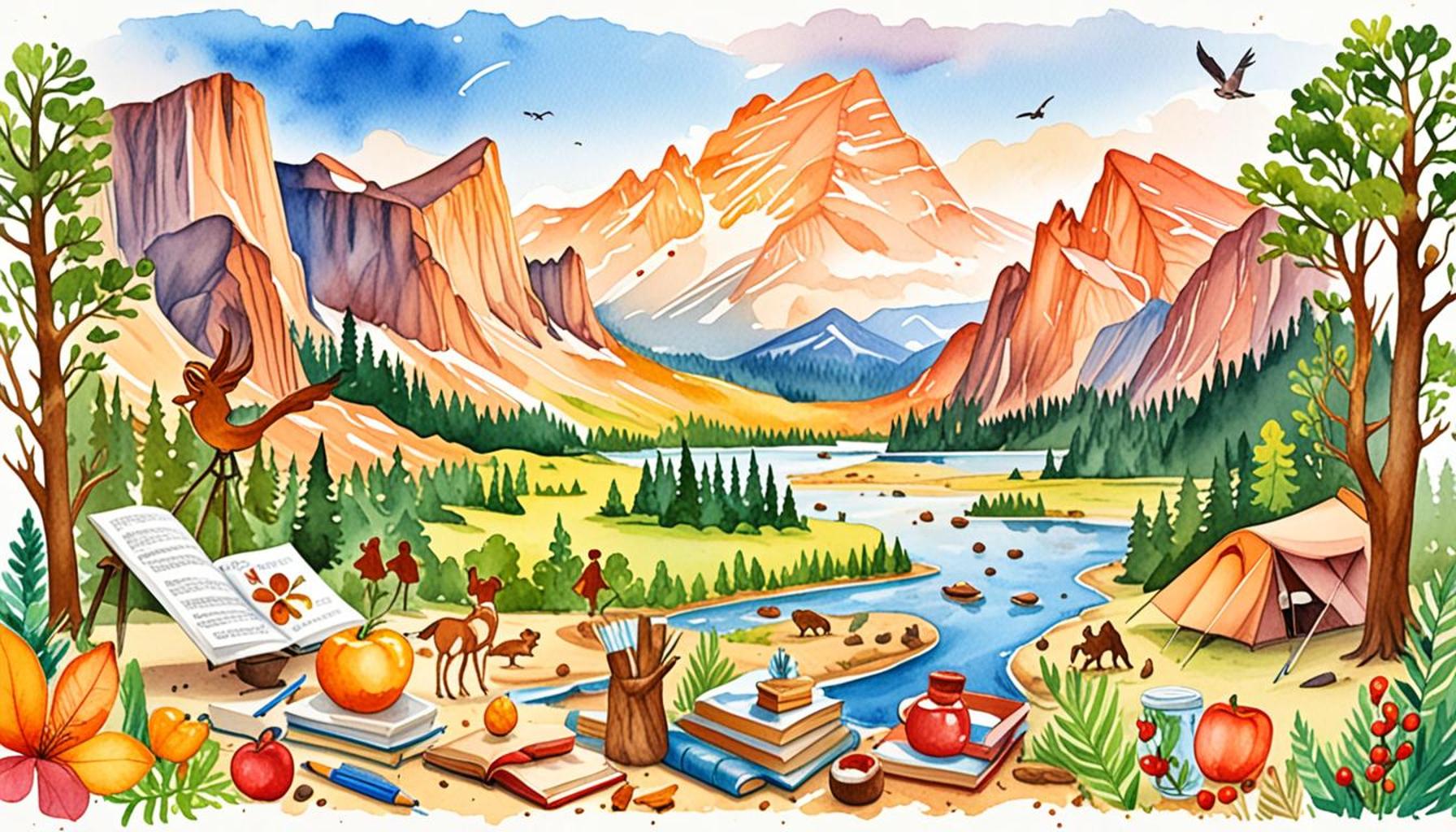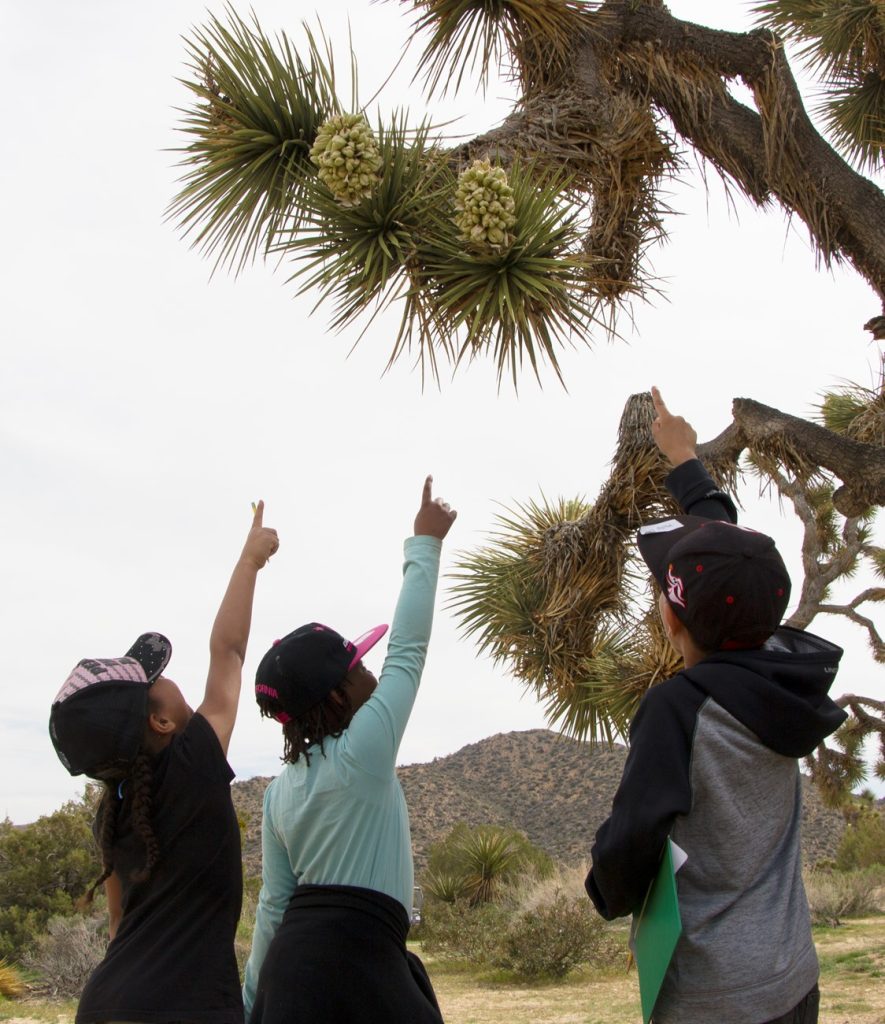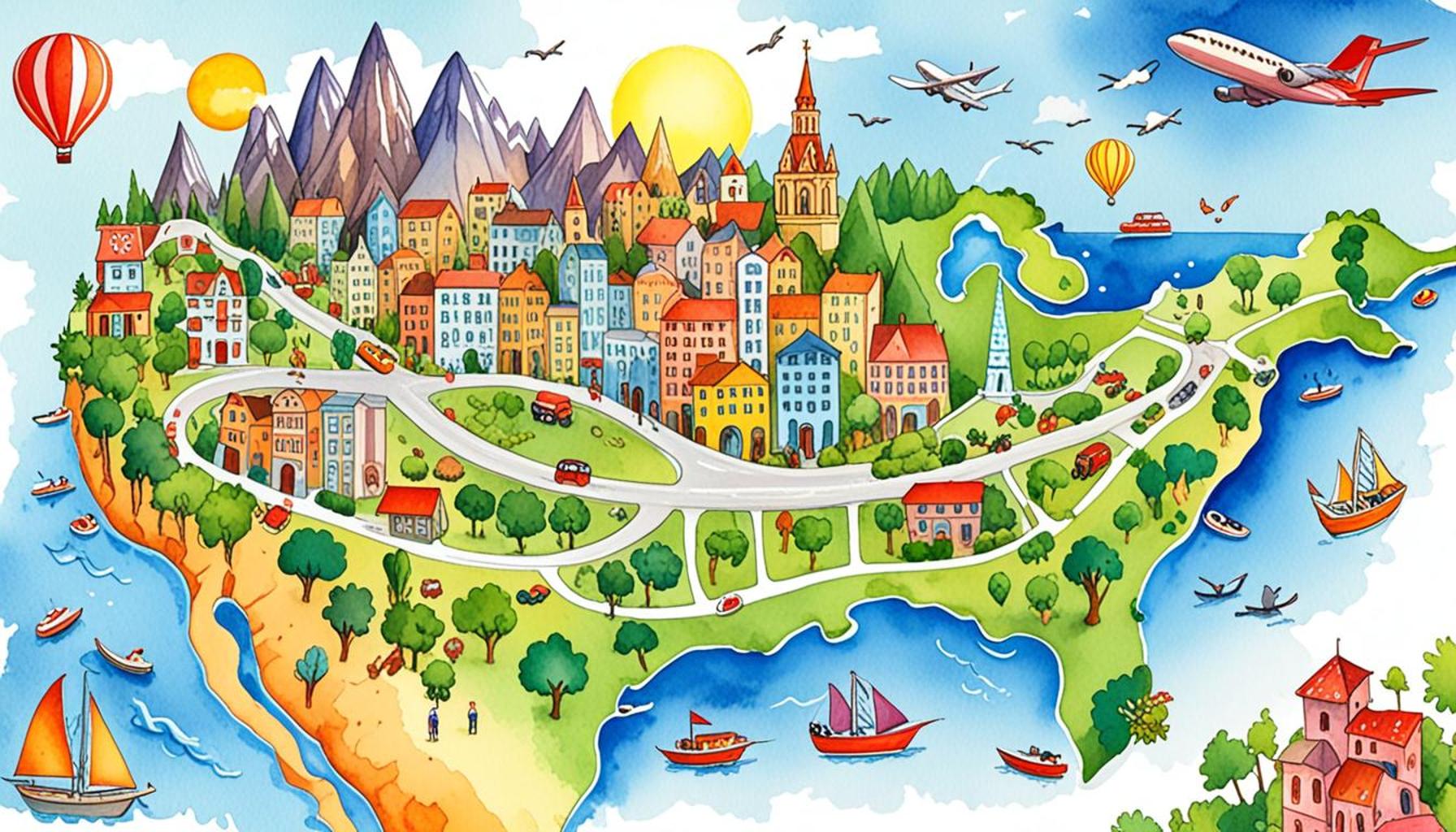Educational and Fun Activities in National Parks for Families

Discover the Wonders of National Parks
National parks across the United States serve as gateways to natural beauty and a rich tapestry of ecosystems that can ignite the imagination of families. These protected areas not only capture the breathtaking essence of our environment but also provide a backdrop for interactive learning experiences that cater to all age groups. From the stunning vistas of the Rocky Mountains to the serene lakes of Acadia National Park, national parks offer an immersive adventure that fosters a deep appreciation for nature.
Why Choose National Parks?
- Diverse Ecosystems: Within the vast acreage of national parks, families can encounter a multitude of environments. For instance, visitors to Everglades National Park can explore lush wetlands, while those in Joshua Tree National Park witness a unique desert landscape filled with striking rock formations and hardy plants such as the iconic Joshua tree. This diversity allows families to understand how various ecosystems function and rely on one another.
- Structured Programs: One of the many highlights of national parks is the ranger-led programs that are abundant in these areas. Designed to enrich visitors’ experiences, these programs often include guided hikes, wildlife spotting, and informative talks that delve into the history of the land. Whether learning about the glacial activity that shaped Glacier National Park or the Native American cultures connected to the land, families can gain a wealth of knowledge through these educational opportunities.
- Hands-On Experiences: Engaging activities are encouraged throughout the parks, and families can take part in scavenger hunts or bird watching. For example, in the Smoky Mountains, young explorers can participate in a nature journal challenge, where they document the various species they encounter, thus cultivating observation skills and a sense of wonder.
As families navigate these stunning backdrops, they find themselves inspired by nature’s beauty while absorbing important lessons about conservation and sustainability. The magic of national parks lies in their ability to create memorable experiences that anchor connections between families and the natural world.
Activities to Consider
- Junior Ranger Programs: Many parks offer dedicated programs for children, where they can complete fun activities and educational tasks to earn coveted Junior Ranger badges. This program not only fosters a sense of responsibility but also motivates kids to learn about protecting the environments they cherish.
- Nature Trails: Easy hiking trails like those found in Shenandoah National Park can introduce families to the beauty of the wilderness. These trails weave through stunning geological features, wildlife habitats, and even historical sites, making every step a learning opportunity.
- Camping and Stargazing: Camping in national parks provides families with the chance to disconnect and immerse themselves in nature. At night, away from city lights, participants can enjoy breathtaking stargazing. Parks like Big Bend host astronomy programs where families can learn about constellations and celestial phenomena, deepening their connection to the universe.
Choosing to explore the rich tapestry of educational and recreational offerings in national parks means setting off on an adventure that melds enjoyment with enlightenment. Families have a unique opportunity to forge deep connections with nature, one another, and the historical narratives that shape our land, ultimately creating lasting memories and valuable life lessons.
DISCOVER MORE: Click here for unforgettable romantic getaways
Engaging Activities for Every Family Member
National parks offer a broad array of activities that promise both education and entertainment for families, catering to diverse interests and age groups. The landscape is not only breathtaking but is also a living classroom, presenting opportunities for hands-on learning and exploration. Below, we delve deeper into some of the most engaging experiences available for families in these natural sanctuaries.

Interactive Workshops
- Nature Crafts: Families visiting national parks can participate in exciting workshops designed to inspire creativity while fostering environmental appreciation. For instance, many parks organize nature crafts sessions where children can utilize materials found on the forest floor, such as leaves, twigs, and stones, to create unique art pieces. Projects like making leaf rubbings or constructing pinecone bird feeders not only allow children to express their artistic side but also emphasize the importance of using materials that won’t harm the environment. This hands-on approach encourages kids to connect with nature while developing their cognitive and fine motor skills.
- Sustainable Practices: Parks also prioritize educating visitors on sustainable living practices. In destinations like Yellowstone, families can attend workshops aimed at imparting knowledge about composting, water conservation, and sustainable gardening methods. These sessions educate participants about how their decisions impact the ecosystem. Moreover, children learn how to plant seeds in a way that respects local wildlife, which encourages them to think critically about their roles in preserving our planet.
Wildlife Observation
Few experiences are as exhilarating as observing wildlife in its natural setting, and national parks excel at facilitating this connection. Parks such as Denali and the Great Smoky Mountains offer guided wildlife tours where families can spot iconic North American animals including bears, moose, and deer. Accompanied by knowledgeable guides, visitors gain insights into the behaviors and ecological roles of these animals. A thrilling sighting of a majestic elk or a playful family of otters enriches the experience and fosters a sense of wonder.
For example, in Yellowstone, families participating in wildlife observation tours often learn about the balance of predator and prey, which highlights the interconnectivity of the ecosystem. This immersive learning fosters respect for wildlife and emphasizes the importance of conservation efforts.
Educational Exhibits and Visitor Centers
- Interactive Displays: National parks often feature visitor centers equipped with hands-on exhibits designed to engage young minds. These centers might include interactive touch tables that allow kids to handle replicas of animal tracks or geological samples. Furthermore, some parks provide virtual reality experiences that transport visitors to different habitats or historical events, making learning more dynamic and impactful.
- Informative Films: Another valuable resource at visitor centers are the short films that introduce families to the park’s unique geography, history, and ecology. These films serve as an engaging way to set the stage for a family’s adventure, sparking interest and curiosity about what they will encounter along the trails. Discussions prompted by these films often enhance the overall experience, making it more enriching.
Such engaging activities provide families not only with entertainment but also with profound opportunities to deepen their understanding of ecological concepts, historical significance, and conservation importance. By actively participating in these educational experiences, families leave the park not just with memories of breathtaking views but also with a newfound appreciation for the natural world and a commitment to protecting it.
| Activity Type | Benefits & Features |
|---|---|
| Guided Nature Walks | Enhances family bonding and promotes awareness of local ecosystems. |
| Junior Ranger Programs | Encourages children to learn about conservation while earning badges. |
| Campfire Stories | Fosters storytelling skills and family interaction in a fun way. |
| Wildlife Watching | Provides opportunities to observe animals, promoting respect for nature. |
When planning a family trip, incorporating these educational and fun activities in national parks can enrich the experience significantly. By engaging in guided nature walks, families can explore beautiful landscapes while learning about the flora and fauna in their natural habitats. Junior Ranger Programs not only provide children with an enticing badge upon completion but also instill valuable lessons about conservation and the importance of protecting our environment.Additionally, activities like campfire storytelling can create lasting memories and strengthen family bonds. Finally, wildlife watching can enchant both children and adults, prompting discussions about species conservation and ecological awareness. Such experiences encourage a love for nature that can last a lifetime. As families delve into these activities, they will find that national parks are treasure troves of knowledge and adventure waiting to be discovered.
DISCOVER MORE: Click here for delicious itineraries
Exploring Nature Through Guided Experiences
Beyond workshops and exhibits, national parks also provide excellent opportunities for families to engage in guided activities that deepen their connection to the natural world. These experiences are not just adventures; they are designed to cultivate knowledge about the environment, teach survival skills, and instill a greater appreciation for the great outdoors. Here are some prominent guided activities that families can participate in during their national park visits.
Nature Hikes with a Purpose
Guided nature hikes are among the most immersive ways for families to explore national parks. Parks such as Yosemite and Acadia offer ranger-led hikes that blend physical activity with educational components. During these hikes, rangers often stop to discuss local flora and fauna, geological formations, and conservation practices. Families are encouraged to ask questions, enhancing their understanding of the ecosystem while experiencing the breathtaking beauty surrounding them.
One particularly engaging aspect of these hikes is the opportunity for children to participate in scavenger hunts, where they search for specific plants, animal tracks, or geological features. This interactive element not only makes the hike more exciting but also promotes observational skills and teamwork among family members. As families trek along, they can equip themselves with a newfound understanding of the environments they traverse, making memories along the way.
Ranger Programs and Storytelling
Another delightful way to learn about the history and culture of national parks is through ranger programs that feature storytelling. These sessions often take place around a campfire or at designated amphitheaters, immersing visitors in traditional tales of the indigenous peoples or pioneers who once inhabited these lands. For example, parks like Grand Canyon offer evening programs that recount the history and mythology of the region while connecting families to the rich narrative of their surroundings.
Families can gather around, listen to engaging stories, and participate in discussions that foster critical thinking about the impacts of history on nature. The narratives shared by rangers serve not only as a method of education but also as a way to deepen the emotional connection to the land, making the visit more meaningful and impactful.
Junior Ranger Programs
Perfect for families with young children, the Junior Ranger Program is a cherished staple in many U.S. national parks. This interactive educational initiative engages kids in fun activities that help them learn about the park while earning an official Junior Ranger badge. Kids can participate in guided tours, complete activity books, and even conduct mini-research projects.
For example, in parks like Zion and Olympic, children can learn about conservation by visiting various park habitats and understanding the importance of protecting these ecosystems. Not only do kids enjoy the thrill of becoming a Junior Ranger, but they also leave with a sense of accomplishment and dedication to environmental stewardship.
Water Activities and Educational Wetland Tours
For families visiting parks that offer bodies of water, engaging in water activities like kayaking, canoeing, or river rafting can be both exhilarating and educational. Parks like Everglades and Lake Clark provide guided wetland tours that teach families about the crucial role of wetlands in supporting biodiversity and water quality. Visiting natural waterways leads to the discovery of unique species and ecosystems, making the experience both thrilling and enlightening.
Additionally, children often learn about the delicate balance of aquatic ecosystems and the significance of preserving these habitats for future generations. Such firsthand experiences contribute significantly to a family’s understanding of environmental issues and encourage lifelong commitments to conservation and appreciation of nature.
By participating in these diverse guided experiences, families can forge stronger connections with the natural world, enriching their time in national parks while acquiring invaluable skills and knowledge about the environment. These activities not only entertain but also inspire a lasting love for nature and a commitment to protecting it for years to come.
DIVE DEEPER: Click here to savor the adventure
Conclusion: A Gateway to Nature’s Wonders
In conclusion, national parks offer educational and fun activities that are perfectly tailored for families seeking to deepen their connection with nature. From adventurous guided hikes in Yosemite to engaging storytelling sessions in the Grand Canyon, these experiences not only entertain but also educate, providing families with the tools to appreciate and understand the ecosystems around them.
Through initiatives like the Junior Ranger Program, children are empowered to become stewards of the environment, learning essential skills while basking in the beauty of their surroundings. Activities such as water tours in the Everglades introduce families to the intricate balance of aquatic ecosystems, highlighting their importance to both biodiversity and conservation.
As families engage in these diverse activities, they create lasting memories that strengthen their bonds and spark a lifelong interest in nature and its preservation. Ultimately, these educational experiences in national parks not only enlighten young minds but also inspire a collective commitment to protecting our planet’s natural heritage.
For those looking to embark on a journey filled with adventure, learning, and unforgettable moments, national parks are the ultimate destination. So, gather your loved ones, answer nature’s call, and explore the incredible opportunities that await in these breathtaking natural landscapes.


